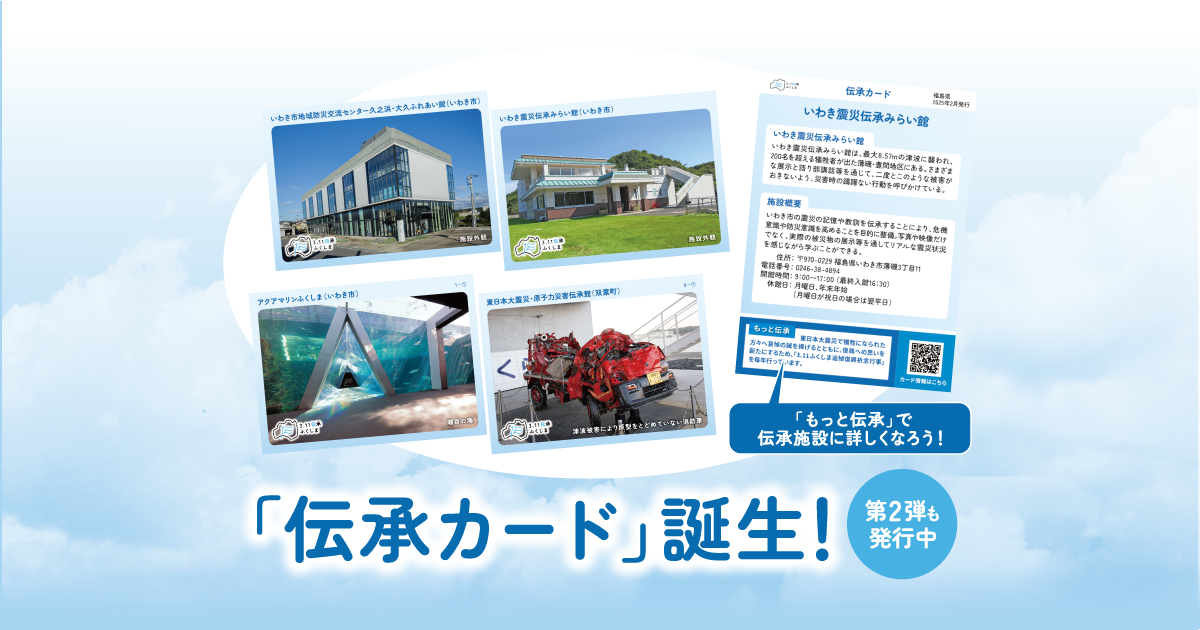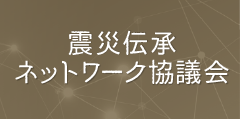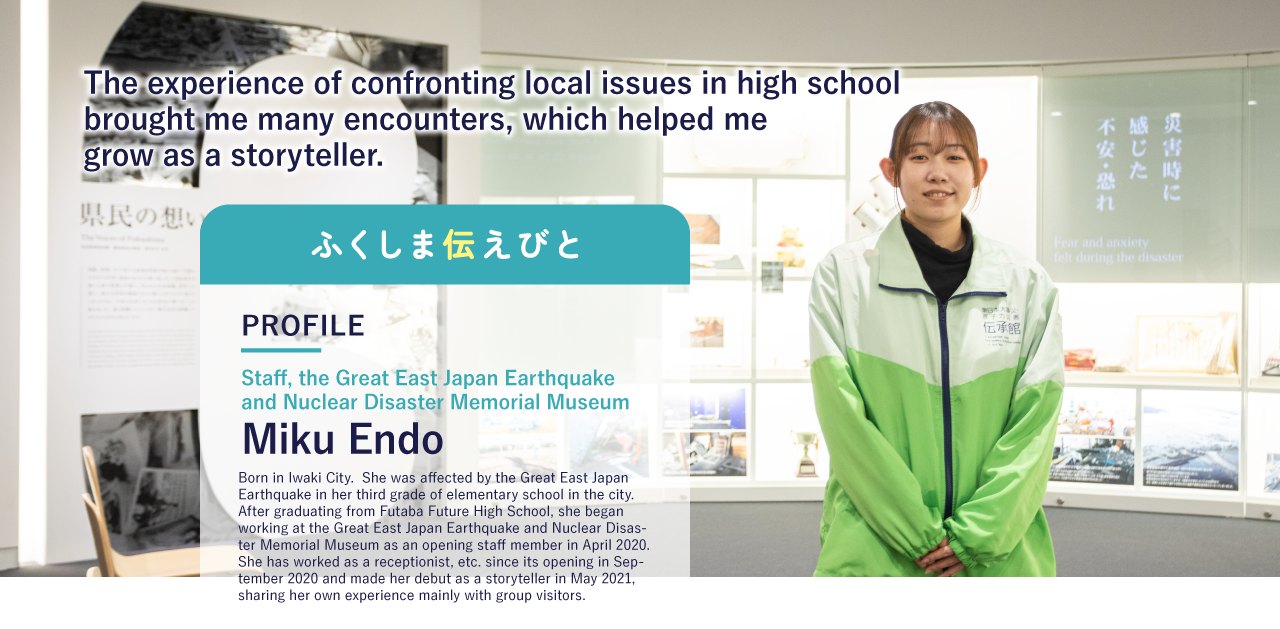
Entered Futaba Future High School, in search of what she wanted to pursue
Learned about the situation of the earthquake through fieldwork
Ms. Miku Endo began her career as an opening staff member in April 2020 at the Great East Japan Earthquake and Nuclear Disaster Memorial Museum that opened in September 2020 and started her activity as a storyteller in May 2021. As she had a vague plan for her future when deciding the next level of education in the third year of junior high school, she entered Futaba Future High School, which offered a General Studies Department. It took time for her to find what she wanted to pursue, but the fieldwork in a class called Future Creation Exploration Activity became a turning point. “I started high school in 2017. I thought the earthquake was something that had happened in the past, but I was shocked to see that the streets in Futaba County were still as they had been at the time of the earthquake.” In fact, a large part of Futaba County is still designated as difficult-to-return zones, and some people are still living as evacuees. Even in the places where evacuation orders have been lifted, only a limited number of people have given up their new lives to return. Many of the returnees at that time were elderly in Hirono Town, where school buildings were located. Moreover, community networks had weakened due to the long evacuation period, which made some elderly people stay home all the time and isolated from society.
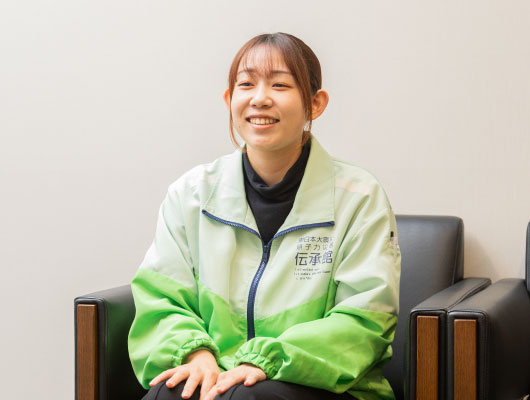
Ms. Endo talks about how she decided to work at the memorial museum after graduating from high school and became a storyteller.
Interaction with the elderly made her decide to work at the memorial museum.
She works as a storyteller to return the favor she received.
Under such a situation, Ms. Endo and her colleagues came up with the idea of interacting through cooking. High school students and senior citizens brought food to a community hall in the town and enjoyed a meal together, creating a reason for them to go out and an opportunity to connect with other elderly people. Ms. Endo recalls, “I felt that we were getting a little closer to the lively Hirono Town we had been aiming for when I saw smiles on the participants’ faces on the day of the event.” These activities caught my teacher’s attention, who recommended me to work at the memorial museum. She has worked as a receptionist, etc., for some time after the opening of the museum and started her activity as a storyteller in May 2021. There are two types of lectures on the earthquake at the memorial museum: for individual visitors and for group visitors. For individual visitors, storytellers in the community hold four lectures a day in the workshop space inside the exhibition room. For group visitors, lectures are provided by lecturers from the NPO, the Tomioka Town March 11 Storytellers Association, and the museum staff including Ms. Endo in the training room on the first floor. Ms. Endo says, “I’m working on this activity with my desire to give back to the community for its recovery from the earthquake.
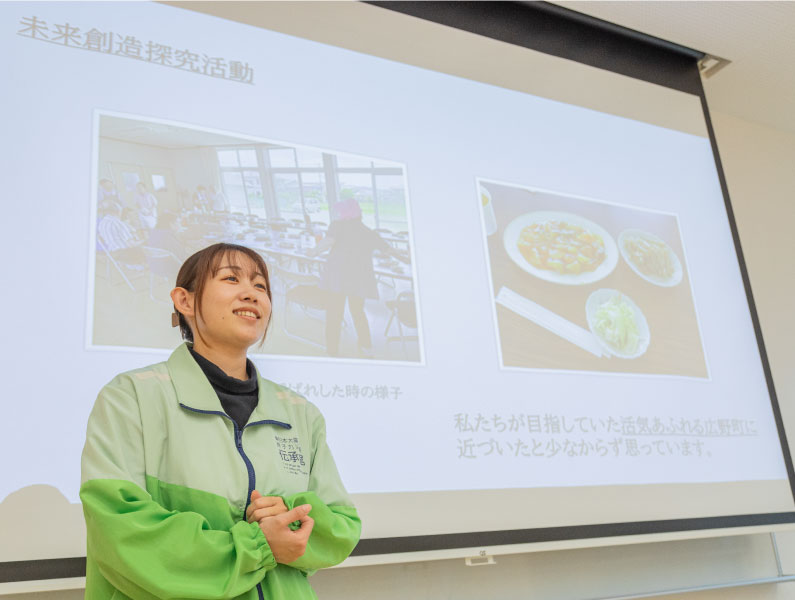
Ms. Endo talks about the fieldwork at Futaba Future High School, which made her think about contributing to the community.
To the people I met because of the earthquake,
I convey the importance of living our everyday lives with care.
Ms. Endo had some struggles at first. She wondered, “I’m from Iwaki City. There are people who suffered more than I did. Am I really qualified to be a storyteller?” However, while many elementary, junior high, and high school student visitors have no memory of the earthquake and see it as a part of history, “some of the adult visitors told me, “It was nice to hear your story. Please keep working on this so that our memory of the earthquake will not fade away.” with tears in their eyes. I realized once again I was a storyteller,” she says. “I met many people because of the earthquake. I convey the message to live our everyday lives in the present moment with our loved ones with care.” She also posts appealing local information, including nature and food, for those who became interested in Fukushima Prefecture after the earthquake. “Recovery from the earthquake is progressing slowly but steadily. I would like to improve my lectures accordingly. I want to be a storyteller who is closer to the community and emotionally supportive of visitors.” she told us.
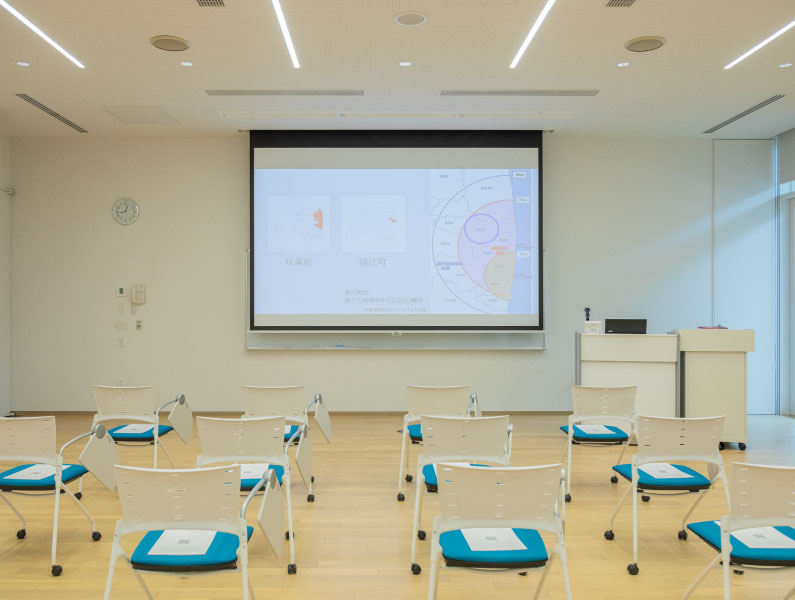
Training room where lectures are held She often tells stories to children and students at the request of teachers, saying “We want to have them hear about the experience of people close to their age.”
The Great East Japan Earthquake and Nuclear Disaster Memorial Museum
〒979-1401
39 Takada, Nakano, Futaba-machi, Futaba-gun, Fukushima Prefecture
TEL:0240-23-4402

